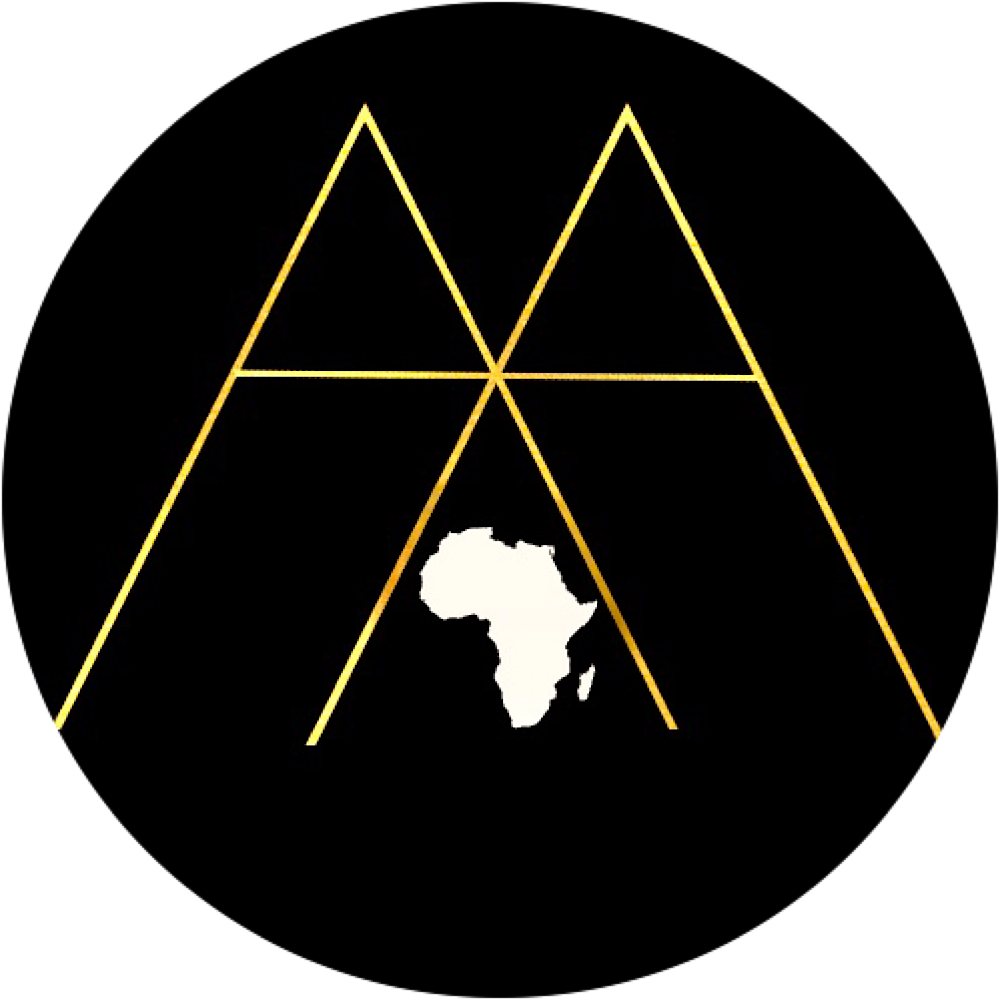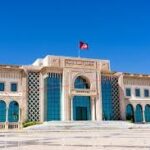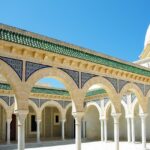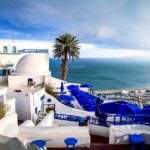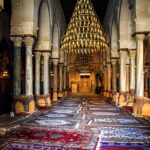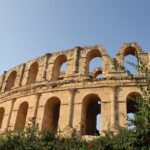Translate
The ultimate guide to solo travel in Tunis, Tunisia
About Tunis
Tunisia, a country often visited for its great beaches but this country has so much more to offer than its sun. With 8 UNESCO Heritage sites, historic landmarks and cultural medinas, Tunisia is a great country to explore. The country is situated on the North African coast. Its neighbouring countries are Algeria and Libya.
If you’re planning on travelling to Tunis (the capital) you will feel very safe as people are friendly and will offer you help. However, there have been a few political protests in the capital, (as of 2021) so do be aware of this when choosing your stay/ time to go to the country.
The city is safe to travel to as long as you practice caution, like with every big city. If you are lost always go into a shop to ask directions rather than strangers on the street. As a solo female traveller you should also be mindful of your things, whether that’s your bag at a restaurant or drinks at a bar, never leave your things unattended. Also at night, Tunis can get pretty sketchy and I won’t advice walking around alone. If you’re a woman especially, as you would be the only woman on the street. However if you do go out alone at night there are a lot of armed police/army officers, so if you are feeling scared do feel free to approach them.
In Tunis, the accommodation is cheap. I was able to book a hotel room for 5 nights for around £25 per night. Now granted that I did go during the off-seasons (in February) during the summer you can still get a good hotel room for around £15-£50 a night in the heart of the city. Hotels are also a lot cheaper in the country so you may want to use booking.com/hotels.com etc. to help you book your first nights there and then have a look around at the different hotels in the city too.
Tunisia is a beautiful culture-rich country lying in northeast Africa. Its historical ruminants are a powerful reminder of the strength of the country.
With 8 UNESCO Heritage sites, historic landmarks, and cultural medinas, Tunisia is a great country to explore. To further understand Tunisia’s Rich history so must visit places are;
Carthage
The Carthage is a collection of ancient ruins which are the remnants of a once-powerful Pheonican city destroyed by the Romans. This UNESCO World Heritage site is a must-see piece of history and culture lovers.
Punic Town
Punic town, though outside of the Capital Tunis and located is in the north-eastern region of Tunisia. This site though discovered in 1952 dates back to the 3rd century BC! It is a great way to understand the true enormity of this once great city.
Amphitheatre of El Jem
These are the largest colosseums in North Africa dating back to the 3rd century, These magnificent ruins really put the magnitude of the Roman empire into perspective.
Thugga
This UNESCO World Heritage site was the capital of an important state during the Roman reign. With over 17 centuries worth of history in this site’s ruins, this place is an amazing step back into time.
Zaytuna mosque
Zaytuna mosque is the oldest and greatest mosque in Tunisia with many Muslim scholars graduating from university over a thousand years ago.
Cathedral of St. Vincent de Paul
This beautiful cathedral is located in the heart of the city and can’t be missed. Close to the Medina, this eye catching building is home to some beautiful architecture.
The Bab el Bhar
This is a monument on the entrance of the Medina and can be seen as the gateway between the two worlds of the modern capital and the ancient Medina markets.
Zaytuna mosque
This mosque is the oldest and greatest mosque in Tunisia with many Muslim scholars graduating from university over a thousand years ago.
Sidi bou said,
Located just on the outskirts of Tunis, Sidi Bou Said boasts some of the largest collections of white and blue houses in the world. These houses are well preserved and still in use to day! With beautifully decorated doors, this place is said to be Africa’s own Santorini.
This tranquil town is a great place to view the Tyrrhenian sea, hike and enjoy
With many hotels here too. Africa’s own Santorini! This little town overlooks the port with beautifully designed white and blue houses.
- Get lost in the city
Why not start by wandering around the city centre and getting your I love Tunis picture, This monument is located in the heart of the city on Ave Habib Bourguiba, is a nice place to start your sightseeing days here. With cheap and reliable public transports, getting busses or metros are a great way to really immerse yourself into Tunis.
- Try the food!
Due to Tunis’ culture, their culinary cuisines are amazingly diverse. Fun fact: The country’s national dish is couscous. Though this is the case, Tunis is home to a plethora of great restaurants where you can try some other typical Tunisian foods, including Ojja (egg and tomato sauce), Lablabi (chickpea soup) and mint tea. In Tunis, it is quite common to see international cuisines also being served.
- Get lost In the Medinas
Each city has their own marketplace or Medinas with Tunis and Sousse’s being UNESCO World Heritage sites. These medinas are not only a reflection of the country’s previous eras but are a great way for tourists to immerse themselves in Tunisian culture.
- Visit the Cathedral of St. Vincent de Paul
This is a beautiful cathedral located in the heart of the city. The Bab el Bhar is a monument spectating Medina and a modern-day city.
- See the Zaytuna mosque from a rooftop
This is the oldest and greatest mosque in Tunisia with many Muslim scholars graduating from university over a thousand years ago. You can get to see this beautiful mosque from a distant rooftop for a small price, it’s totally worth it!
- Relax in a quiet oasis’ around the city
Both Belvedere park and Lake Tunis are great places to unwind after an exciting day of sightseeing with tranquil, picturesque landscapes.
- Get cultured
A little out of the city is Bardo National Museum, is home to one of the largest collections of Roman mosaics.
- Get a glimpse of Greece
Visit Sidi Bou said, Africa’s own Santorini! This little town overlooks the port with beautifully designed white and blue houses.
- Explore the Carthage
These ancient ruins are the remnants of a once-powerful city destroyed by the Romans. This UNESCO World Heritage site is a must-see piece of history. Like the Carthage, there are many more breathtaking ruins scattered around Tunis which you can book a tour to be taken to each one.
- Head to the beach
After a long busy day in the big city, it’s always a great idea to find a place to relax in. With amazing weather all year round, public beaches such as Plage Publique de La Marsa, located in the northeastern part of the city, is a great beach to unwind at.
The best time to go to Tunis is during their spring months as the weather is perfect for beach days and tourist days out. The spring months are between March – June. During September and October, the weather tends to be cooler and still quite a pleasant time to visit.
I visited the country in February and found the temperatures quite nice to wonder round the streets in during the day but at night it did get pretty cold quickly.
– Modesty is a must, especially as a woman. As the country is a Muslim country, foreign women and men should dress modestly to respect the culture.
– Learn the language. It may be useful to learn a little Arabic or French as English is not commonly spoken in smaller cities.
This country is slightly harder to make friends especially those of the opposite sex due to the culture.
However people are often very friendly and intrigued by foreigners and want to get to know more about you and your culture. I often had people in the street stop me because they heard I spoke English and wanted to sit and talk with me about being from London.
You can also take a tour. There are so many experiences and tours in Tunisia, especially in Tunis as a great way to also meet fellow wanderlusters and who knows. They may even be able to share with you some hidden gems in the country.
Online forums and clubs may also be a great method to meet people. Using sites like Facebook and joining groups is a great way to get the ball rolling, meet locals and see their city.
The largest and main airport in Tunisia is the Tunis-Carthage International airport.
There are also smaller airports such as Enfidha-Hammamet, Djerba Zarzis, and Monastir International airports. These airports also run domestic flights within them too.
Depending on your reasoning for going to Tunisia, I would suggest a week or 2. It is easy to explore the capital, see the sites and have beach days in Tunis for a week but if you’d like to travel to other cities too such as Punic town or Sousse, then a little more than a week should be good.
Can I drink the water? Generally rap water is safe to drink
Is tipping expected? In certain restaurants and excursions, it will be expected to tip however in most cases it is not expected.
Fixed price or barter? Most things are fixed priced but if you are in the medina do make sure you haggle!
Any ATMs? YES! In the capital Tunis and close by cities such as Sousse especially you’ll find a lot of ATM machines accepting VISAs, Mastercards and others. There are also many exchange rates.
Which side of the road do they drive? Right
Good for vegetarians? Yes (you may be offered fish a lot as they think vegetarian means no meat) For vegans however, it will be very difficult to find restaurants
Facts
Plan a trip to Tunis
If you are ready to solo travel Tunis here are some useful links to help you plan your travel.
Budget – (£10-£30 a day, minus accommodation)
Capital – Tunis
Population – 12 million
Language Spoken – Arabic and French
Local Currency – Tunisian Dinar (TDN)
Do I need a visa? – No
Flying time to Tunisia – 3 hours from London
Did you know? Fun Fact! Every Star Wars film was filmed in Tunisia.
Want to know more about Tunis?
Follow Us
Want more guides?
Have a story? Would you like to be a writer for our platform? If so, Contact us below
Weekly Blog Stats
- 17,578 Views
